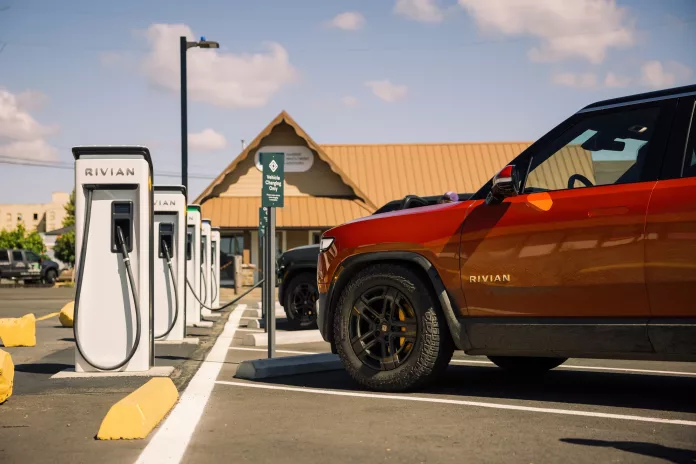When it comes to car brands and customer loyalty, recent insights from Consumer Reports have shed light on just how attached drivers are to their preferred vehicles. With impressive statistics, one emerging brand stands out prominently among the rest: Rivian. Claiming the top spot for brand loyalty, Rivian not only leads the pack but does so with a significant 9% margin over the second-place brand, highlighting a remarkable triumph in the automotive landscape.
The Competitive Edge of Rivian and the Notable Top Eight
Amid the competition, it’s noteworthy that after Rivian, the other contenders within the top eight ranks are separated by a slender 1-3%. This grouping includes MINI at second place, BMW and Porsche trailing close behind, with Tesla occupying an unexpected lower position. A departure from Tesla’s previous domination in customer loyalty may well signify a shift in the EV market dynamics prompted by buyers now having a broader selection of electric options with comparable range and charging conveniences.
Luxury Brands and Customer Satisfaction
Luxury seems to be a defining trait for brand loyalty, evidenced by premium brands like Genesis and Lexus securing spots in the top seven. Their ability to invoke a sense of luxury, while being supported by the prestigious standing of their parent companies, Toyota and Hyundai, respectively, underscores the influence of a premium aura on consumer choice and allegiance.
However, it’s not exclusively the luxury badge that commands loyalty. Honda and Chevrolet, offering enjoyable experiences without necessarily the full suite of features their luxury counterparts present, are examples where value perception can override the thirst for luxury, resulting in greater customer retention.
What Factors Affect Brand Loyalty?
Casting light on the brands at the bottom, Nissan‘s presence is not entirely unanticipated given its quality challenges, particularly in regards to their CVT transmission vehicles and non-liquid-cooled EVs like the LEAF. It is and underscores the importance of quality and reliability in customer satisfaction and repeat purchases.
In the pursuit of high brand loyalty, achieving a synergy between luxury, quality, and reliability seems to be a crucial strategy. Those who manage to excel in two or all three metrics seem to flourish, whereas a deficiency in all can resign a brand to the lower end of customer loyalty rankings.
Rivian and MINI: The Experiential Factor in Loyalty
It’s worth noting that Rivian is not traditionally classified as a luxury brand, yet it disrupts the status quo, mirroring MINI’s leap in customer loyalty. Rivian’s distinct rise might be attributed to the unique off-road experiences it offers, divergent from Tesla’s mainstream EV approach. Despite Tesla’s introduction of the Cybertruck, the immediate availability of Rivian models has likely influenced their favorability among adventure-seeking motorists.
Similarly, MINI manages to captivate consumers with an exhilarating driving experience that speaks to the emotional aspects of brand attachment. Their pivot towards electric models while retaining the brand’s distinct charm could be a key player in establishing a strong, loyal customer base.
In summary, beyond the tangible attributes of luxury and quality, it is the experience that a brand provides which can truly cement its place in the hearts and garages of consumers. Rivian and MINI are exemplars of standing out through unique experiences and emotional appeal, redefining what it means to earn customer loyalty in today’s diverse automotive market.


























